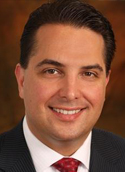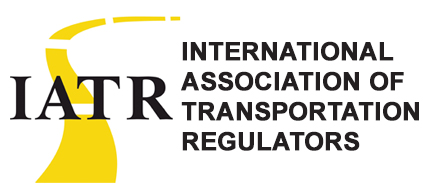By Matt Daus
Municipalities across the world are facing the same problems during the COVID-19 pandemic, and deciding where the government regulator needs to step in to mandate new public health and safety requirements is a question on everyone’s mind. The most effective help for transportation providers and drivers is financial relief and assistance, yet unfortunately, many transportation agencies do not even have the power to solve some of these pressing issues, such as obtaining grants and loans, or insurance premium refunds. They can, however, can lend a helping hand to waive fees and reduce costly red-tape and cumbersome licensing processes.
 IATR President Matt Daus
IATR President Matt Daus
On April 30, 2020, hundreds of regulators and industry members from around the world attended the International Association of Transportation Regulators’ (IATR’s) COVID-19 webinar. IATR is currently drafting best practices and regulations that act as a guide for regulators around the world to implement and has convened a task force to help craft a plan for long- and short-term needs. A recap of the meeting, featuring an all-star panel that included Robert Alexander of the NLA, Peter Pantuso of the American Bus Association (ABA), and Tom Arrighi of The Transportation Alliance (TTA), can be read here. The webinar provided a snapshot of the various initiatives taken by agencies happening around the world, including notable actions from agencies in major U.S. cities. The full webinar is available here.
Federal Motor Carrier Safety Administration (FMCSA): FMCSA Acting Administrator Jim Mullen explained that Electronic Logging Device (ELD) requirement exemptions are extended to drivers who use short-haul, timecard exemptions, drivers conducting a drive-away-tow-away operation, and drivers of vehicles manufactured before the model year 2000. The FMCSA has been working with FEMA and the Department of Homeland Security (DHS) to distribute 1 million cloth masks to drivers at state rest areas in the U.S. and directly through the largest motor carriers. As states or regions begin to reopen, the FMCSA may issue declarations that are regional or state-based, but will likely defer to CDC guidelines regarding vehicle cleanliness, face coverings, and temperature checks and not issue its own guidance (no final decision has yet been made yet).
New York City: Newly appointed New York City Taxi & Limousine Commission (TLC) Commissioner Aloysee Heredia Jarmoszuk said that TLC has coordinated a massive informational campaign, assisting licensees with applications for NYC small business assistance programs and providing them with information on other public assistance programs, including food assistance, unemployment, and mental health programs. The TLC also created an innovative TLC food delivery program called “Get Food NYC,” which has recruited drivers for food delivery services at $53 per delivery route ($40 for the six food deliveries in each route, plus $13 for fuel. The program has helped provide income to struggling drivers through public service and has coordinated the delivery of more than 9 million meals as of April 30.
Washington, D.C.: David Do, director of the D.C. Department of For-Hire Vehicles (DFHV), indicated that taxi trips are down 96 percent, and TNC trips are down 84 percent, since March 2020. To combat the massive dip in ridership, DFHV has focused on providing income to struggling drivers by repurposing its microtransit program to provide trips to hospital workers in partnerships with taxi companies and Via for a $3 fare. Similar to NYC, DFHV is facilitating more work for struggling drivers by allowing them to sign up with commercial food delivery companies while collaborating with the D.C. Department of Health and the D.C. Department of Aging and Community Development to subsidize their food delivery programs with more drivers.
Chicago: Rupal Bapat, deputy commissioner of the Chicago Department of Business Affairs and Consumer Protection (BACP), discussed a $100 million loan program that provided COVID-19 relief to small businesses. Additionally, Chicago implemented financial support specifically geared towards wheelchair accessible transportation services, and eliminated the passenger portion of all paratransit taxicab fares as a way to encourage ridership. BACP also partnered with Uber and Lyft to provide free rides to victims fleeing domestic violence.

Los Angeles: Policy & Enforcement Administrator Jarvis Murray of the Los Angeles Department of Transportation (LADOT) spoke of his agency’s focused response on Non-Emergency Medical Transportation (NEMT) taxicabs. Assisting those with medical and physical needs has been a priority for many agencies during the pandemic; LADOT has taken action to streamline vehicle additions and driver permitting for ambulance companies as this sector has remained busy, but employee retention has been a struggle during the pandemic.
IATR Survey: IATR also recently conducted a regulator survey, which included almost every major city and/or state in the U.S. and Canada. Among the key findings:
Operational Relief Measures
- 73 percent of respondents indicated their offices had closed, allowing employees to work from home. As agencies closed their offices, licensing procedures become increasingly difficult to manage.
- 64 percent reported relief measures for licensees, including measures taken for licensing, which included the extension of licenses, online license renewals, and termination of municipal licensing services during the pandemic.
- 45 percent of agencies also deferred fees to provide relief to licensees in their respective jurisdictions. Enforcement, however, has drastically decreased throughout the entire industry.
- 37 percent indicated they have suspended all enforcement measures
- 17 percent have stopped enforcement measures taken concerning insurance
- 18 percent reported increased enforcement on overcharging
- 27 percent reported increased enforcement of “clean vehicle” rules
Shared Mobility
- 60 percent reported that they have not discouraged, banned, or limited group riding or ridesharing services
- 7 percent have officially banned ridesharing
- 33 percent have discouraged it
Driver Health & Safety
- 87 percent reported that licensed drivers are cleaning vehicles before and after trips, or in-between trips
- 80 percent of those reported that drivers are bringing their own cleaning supplies
IATR has a COVID-19 resource page, which is available here.
Matt Daus is a partner with law firm Windels Marx and the former commissioner of the New York City Taxi & Limousine Commission. He can be reached at mdaus@windelsmarx.com.
[06.01.20]

